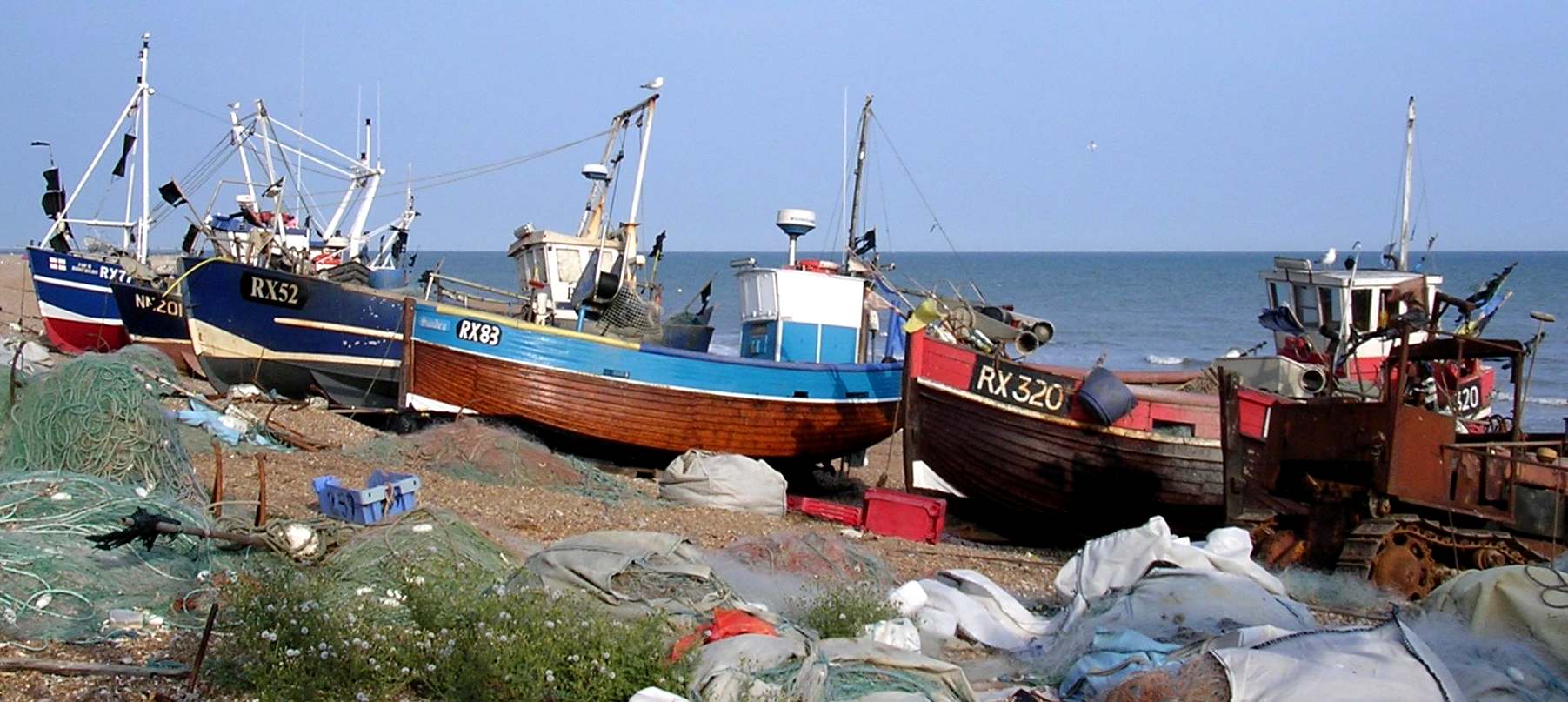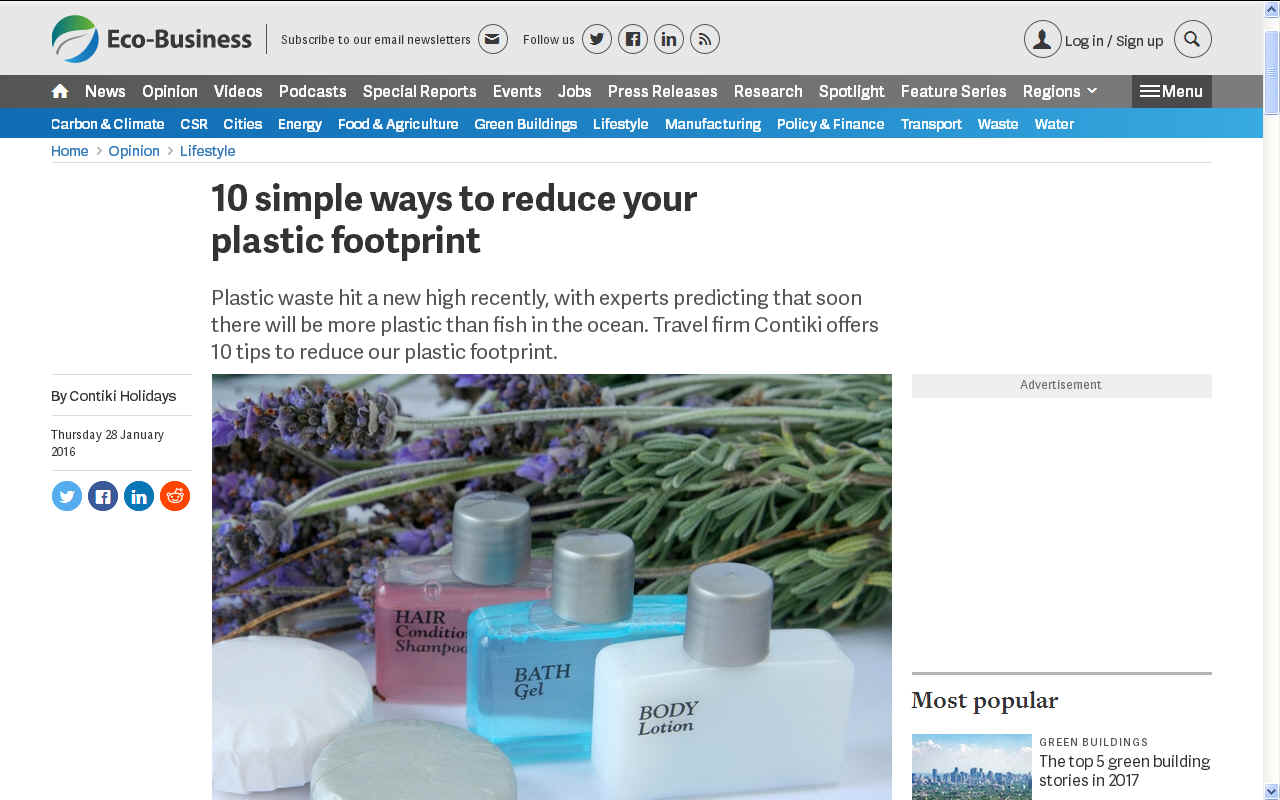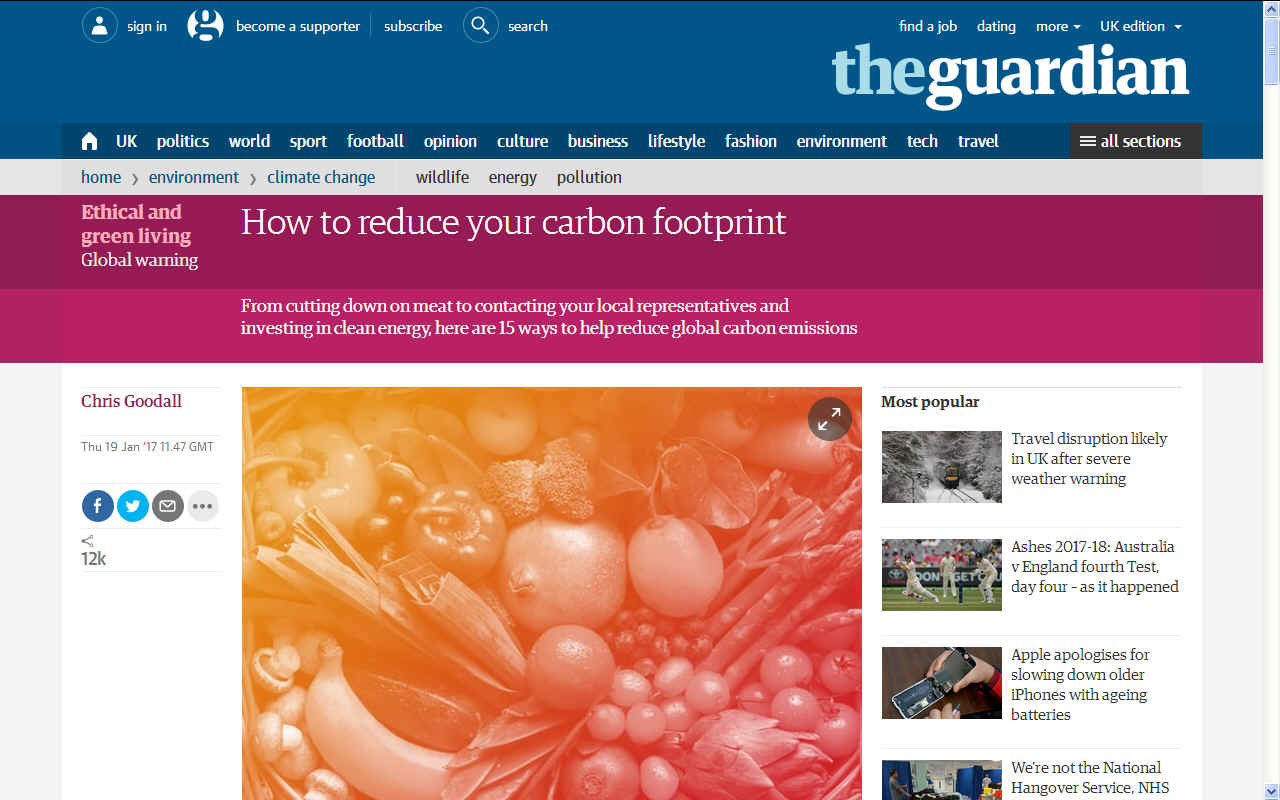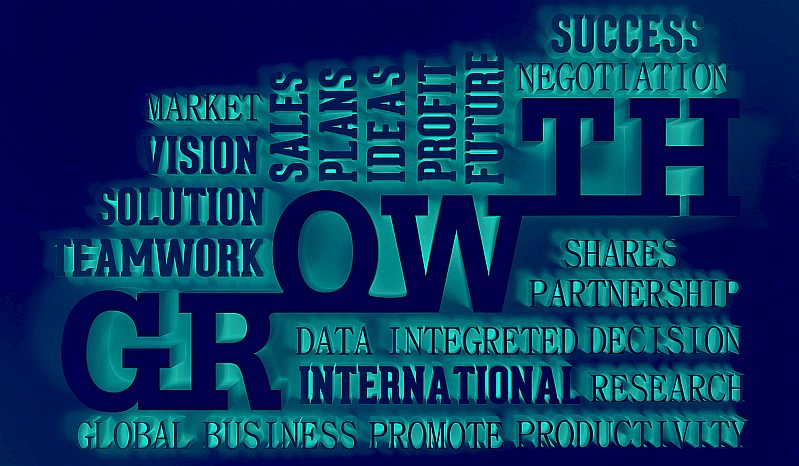|

GREENPEACE -
One of our researchers took the footprint challenge operated by
Greenpeace. He almost never buys any plastic bags, he uses one of the
in-store cardboard boxes that are being thrown away. He does not use
drinking straws and washes up using a few drops of detergent, rather than
a big squeeze - so hardly ever buys any. He also uses the same cup for
coffee and tea rather than wash up several a day. This is unusual but we
hope more people adopt a similar lifestyle.
Q.
How big is your plastic footprint and what does that mean?
A.
It means how much plastic do you use in your life. Or, if you are a
manufacturer, how much plastic are you using in your products and what
steps are you taking to recycle.
In
your everyday life you can take steps to reduce your plastic consumption.
There are many tips on this page as to how to do so and there are many
other sites with more information about this subject.
If you manufacture
goods that use plastic in the product or process or for packaging, then
you can help us to spread the news about recycling and campaign on your
behalf for better facilities to enable proper disposal, which at the
moment is a long way off.

PLASTIC
& NETS - This fishing fleet at Hastings in England, litters the
beaches with plastic containers and nets, some of which will find their
way into the oceans and will kill marine life. Fibers and
microbeads pervade our seas, coming from
clothing and cosmetics, and ending up in the stomachs of
larval fish, so
entering the food chain to eventually poison us.
HOW
CAN WE HELP ?
One way that we can make a positive contribution to reducing the plastic
footprint of thousands of people in the UK is via our ocean awareness
tours.
We
plan to tour the UK in an Eco
Bus, a converted Volkswagen
combi van from 1978 that is
designed to spread the word about responsible disposal and recycling of
single use plastics. This vehicle also demonstrates that some products are
built to last and if cared for can provide transport forty years or more
after they were made.
Our
ocean ambassadors will be giving talks at selected venues and will
demonstrate life under the sea in a 3D virtual reality environment that we
are developing especially to support our awareness campaigns.

ECO
BUSINESS - 10 ways to reduce your plastic footprint. Plastic waste hit a new high recently, with experts predicting that soon there will be more plastic than fish in the ocean. Travel firm Contiki offers 10 tips to reduce our plastic footprint.
The problem with an issue as huge as the global plastic epidemic, is where do you begin? The statistics around plastic pollution speak for themselves and are impossible to ignore – 500 billion plastic bags used annually, 5 trillion pieces of plastic floating in our oceans, one million sea birds killed annually from plastic ingestion or entanglement.
The problem is real, but where do we start looking for solutions? The answer – we start with ourselves. Often we forget the power we actually all hold in this world, and that’s the power to make a difference, whether it be small or mighty. Humans have a domino effect on one another – when one goes, the next does and so on, and it’s this domino effect that needs to be used for positive change.
Try out these small but significant ways to reduce your plastic footprint, and watch the domino
fall:
1. Invest in a reusable bag
Such a simple solution, but one that could have such an incredible impact. A plastic bag is used for on average just 12 minutes, and yet takes a staggering 940 years to decompose. Is it really worth it?
Make the swap: Pop your reusable bag inside your handbag, on the back seat of your car, next to your front door – anywhere to remind you not to leave it behind, and take it with you when you hit the shops. Want to get real crafty? Why not make your own from recycled materials!
2. Buy in bulk
Buying in bulk is a growing trend and for good reason – not only does it reduce the need for excess plastic packaging, it’s also cheaper and helps to promote a healthy, more organic lifestyle. Stores like Whole Foods now allow you to buy rice, pasta, beans, grains, cereals and other foods in bulk.
Make the swap: Take along a reusable container or, even better, glass jars, to a local market or supermarket that sells in bulk and fill your boots!
3. Leave the packaging at the store
Often it’s impossible to avoid excess plastic packaging completely, so in these instances use the opportunity to tell the supplier you’re saying no to plastic. When you’re buying large items such as a TV, computer or household electrical items, unwrap the product in store and leave the packaging there. Not only does this mean you don’t have to deal with recycling it yourself, it also sends a positive message to those higher up the plastic supply chain that excess packaging is unnecessary.
4. Say no to straws
One of the biggest culprits in both landfill and on the ocean surface is the plastic straw. A small, seemingly harmless product that can actually have devastating effects for marine life who mistake it for food.
Make the swap: When you’re ordering drinks at the bar, just say no to those tempting little straws conveniently located within hands reach, or else ask your waiter or bar tender to deliver your drink straw free. Can’t live without one? Why not invest in a stainless steel or glass alternative.
5. Use a reusable water bottle or Keep Cup
We know you’ve probably got one lying around at home, so use it! In the US alone, 28 billion water bottles are purchased every year. INSANE. Similarly, plastic coffee lids are a common offender both on land and in the ocean, yet did you know that if you use your own reusable hot drink keep cup at Starbucks, they’ll offer you your daily favourite for a reduced price? Win win.
Make the swap: Buy yourself a super cute reusable water bottle and keep cup and help to keep the planet water bottle and plastic lid free, whilst saving yourself a pretty penny. We love the huge range of options from SIGG.
6. Choose glass over plastic
Why? Because glass can be re-used time and time again, where plastic never can. A huge number of food products can be bought in jars, so whenever the option is there, take it. You can wash out and re-use your jars as many times as you like, and for more purposes than you might think – from storing foods to displaying flowers…or even starting a travel fund or rainy day money pot.
Make the swap: Check out this article for ideas on how to reuse your glass jars (spoiler – it’s not just for food).
7. Avoid using hotel or travel size wash products
Hotel products aren’t just a waste of packaging, they’re also just pretty crap, and never as good as what you use at home. Avoiding using them is a simple case of supply and demand – if you don’t demand them, they wont supply them. Cut off the demand cycle and they’ll quit ordering more from their suppliers – simple!
Make the swap: We get that travel size products are convenient, but instead of buying yet more plastic, why not invest in travel size reusable containers? Just decant your favourite products before you go on your travels, then wash them out when you get back so they’re clean and ready for the next time.
8. Wise up to your cutlery choices
Wave goodbye to disposable knives, forks, spoons and chopsticks, and instead be prepared by popping metal cutlery alternatives in your bag. Super simple, instantly effective.
9. Swap your takeaway lunch for a healthier make at home option
So it may take a little bit of preparation work, but bringing your own lunch to work/uni/school with you 100% makes the planet a happier place. Not only are you avoiding plastic packaging around your soggy shop bought sandwich or salad, you’re also doing your body AND your bank balance a favour too.
Make the swap: Invest in some long lasting Tupperware or, even better, go totally plastic free by preparing your lunch in a mason jar or stainless steel container.
10. Watch out for BPA
Bisphenol A, or BPA, is a compound added to plastics to help them harden, and is commonly found in everyday plastic items like
water bottles, plastic containers and plastic linings on packaged foods. Scarier still, BPA exposure has been linked to health effects including obesity, hormone imbalance, reproduction issues and even various cancers.
Make the swap: Look out for a 3, 7 or PC sign on plastic – these are the most toxic types of plastic so avoid them where you can. Also avoid heating up food in plastic containers, or where there’s an alternative to go plastic free, just take it!
Repubished from Contiki
Holidays.

MORE
PRACTICAL ADVICE
- The Canadian Wildlife Federation produced this graphic to help reduce
the quantity of waste that is produced every day just for our coffee
consumption. Any eco lifestyle involves being careful with waste, but also
increasing the efficiency of your domestic or business life. It's not
being mean, it is being frugal.
HOW
CAN YOU HELP ?
You can help us. If you are a corporation looking for ways to reduce your
plastic footprint, you may like to take a look at our ocean initiatives.
Ocean literacy is one of the weapons in our armoury to combat ocean pollution. Our
awareness campaigns
are based on reason, seeking to define the facts and separate them from fiction and spin - to enable us to find common ground on which to build a society that can live with plastic on firm ethical and moral terms. By supporting us our associates and partners are contributing to essential research that may guide corporations and policy makers as to what is promising and the appropriate remedies that could be available, made possible by our increasing knowledge of technology and the state and pace of development that is considered necessary to contain waste that has no place in the open ocean or landfill where it may affect
agriculture and ocean
regeneration.
IT'S
OUR FAULT AND OUR JOB TO PUT THINGS RIGHT
Without us and our ability to exploit nature with science, there would be
no plastic. It is our fault that marine life is being poisoned. It is our
fault that microbeads are in the oceans and it is our fault that there are
giant
swirling masses of plastic in the Atlantic,
Indian
and Pacific
oceans. Try as hard as we might to
mitigate its use, plastic is dangerous in the wrong hands - at the moment
our hands! We are saddened that it has got this bad before anyone thought
to mention it, but now that we know about it, we must do something to stop
our irresponsible ways. We must educate our brothers and sisters who do
not yet realise what they are doing. And we must try to help corporations
and governments who are wanting to alleviate the problem; to reduce their plastic footprint.
Please
help us if you can.

MY
LITTLE PLASTIC FOOTPRINT
- One way of spreading the news about how to reduce your plastic
consumption is with an application for a mobile phone. We are doing the
same, producing a free
download for Android and iOS mobile devices.

CARBON
FOOTPRINTS - Carbon Footprints can be reduced through the development of alternative projects, such as solar and wind energy, which are environment friendly, renewable resources, or reforestation, the restocking of existing forests or woodlands that have previously been depleted. These examples are known as Carbon Offsetting, the counteracting of carbon dioxide emissions with an equivalent reduction of carbon dioxide in the atmosphere.
We should build more wooden houses.



LINKS
& REFERENCE
http://www.eco-business.com/opinion/10-simple-ways-to-reduce-your-plastic-footprint/ https://mylittleplasticfootprint.org/
|







